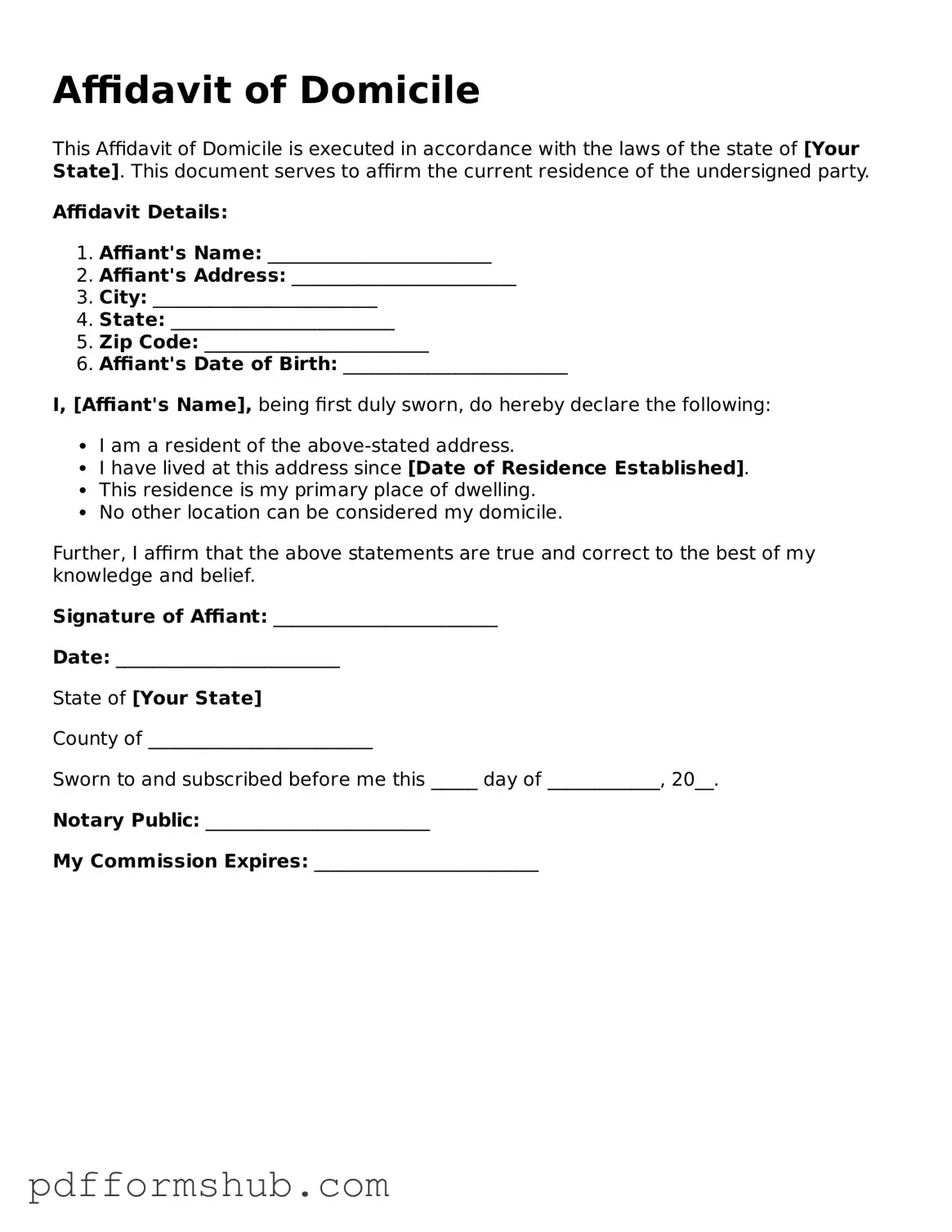Valid Affidavit of Domicile Form
The Affidavit of Domicile is a legal document that confirms an individual's primary residence, often used in matters related to estate planning and asset distribution. This form serves as a declaration of where a person lives, providing essential information for legal and financial purposes. Understanding its importance can help ensure that your affairs are managed according to your wishes.
To fill out the Affidavit of Domicile form, click the button below.
Customize Form

Valid Affidavit of Domicile Form
Customize Form

Customize Form
or
Free PDF Form
Short deadline? Complete this form now
Complete Affidavit of Domicile online without printing hassles.